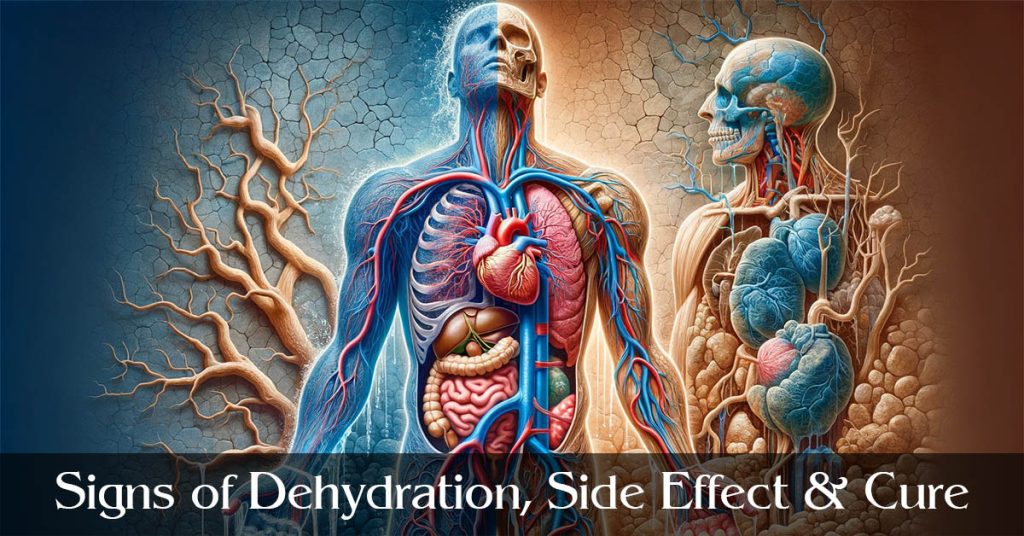Have you ever woken up feeling like you’re carrying a ton of bricks, or experienced that afternoon slump that makes you want to crawl back into bed? If you’re nodding your head in agreement, you’re not alone. Many of us have encountered those moments when our bodies seem to be burdened by an invisible weight, leaving us tired and sluggish. But what causes this sensation, and how can we lighten the load?
In this article, we’re going to delve into the reasons why your body might feel heavy, using everyday language to make it easy to understand. We’ll also explore step-by-step solutions to help you shake off that weight and regain your energy.
The Basics: Why Do Your Body Feel Heavy?
Before we jump into the solutions, let’s understand what might be causing that heavy feeling in your body. It’s not a one-size-fits-all situation, and there could be various factors at play.
1. The Thyroid Tango: Is It Slowing You Down?
Imagine your thyroid as the body’s internal energy manager. When it’s not performing at its best, it can slow down your metabolism, leaving you feeling heavy and sluggish. If you’re experiencing unexplained weight gain, fatigue, and digestive issues, an underactive thyroid (hypothyroidism) might be the culprit.
- Solution: If you suspect thyroid issues, consult a healthcare provider for evaluation and treatment options.
2. Food Frustrations: Could Your Diet Be the Culprit?
We’ve all been there—indulging in processed foods, late-night snacks, or that extra slice of pizza. But these choices can leave your body feeling bloated and heavy. Food intolerances, especially to dairy and gluten, can trigger inflammation and digestive discomfort.
- Solution: Consider a diet rich in whole, plant-based foods, and try eliminating potential food intolerances to see if it makes a difference.
3. Insulin Impasse: Is Your Metabolism Misbehaving?
When your body resists the effects of insulin, which regulates glucose (your body’s energy source), you may feel heavy, fatigued, and sluggish. This insulin resistance can lead to difficulty in managing your weight and maintaining energy levels.
- Solution: Focus on a balanced diet, exercise regularly, and consult a healthcare provider if you suspect insulin resistance or diabetes.
4. Iron Dilemma: Are You Missing Vital Nutrients?
Iron deficiency anemia can leave you feeling tired and fatigued because your body lacks the iron needed to transport oxygen efficiently. Without adequate oxygen, your energy levels can plummet.
- Solution: Incorporate iron-rich foods into your diet, and consult a healthcare provider if you suspect anemia.
5. Mind Matters: The Mental Health Connection
Your mental well-being can play a significant role in how your body feels. Depression, characterized by imbalances in neurotransmitters like serotonin and dopamine, can lead to feelings of fatigue and heaviness.
- Solution: Seek support from a mental health professional if you’re experiencing symptoms of depression.
6. Anxious Antics: When Stress Takes Its Toll
Chronic stress and anxiety can put your body in “fight or flight” mode, flooding it with cortisol, a stress hormone. This prolonged stress response can lead to adrenal fatigue and that heavy, sluggish feeling.
- Solution: Manage stress through relaxation techniques, meditation, and lifestyle changes. Don’t hesitate to seek professional help if anxiety is a persistent issue. (Stress Management Tips)
Now that we’ve unraveled some of the possible reasons behind that heavy feeling, let’s explore practical steps you can take to shake it off and regain your vitality.
Steps to Lighten the Load and Feel Energetic Again
1. Exercise to Elevate Your Mood
Exercise is a natural mood booster. Even a short daily workout can release endorphins, improve circulation, and invigorate your body and mind. Find an activity you enjoy, whether it’s walking, dancing, or cycling, and commit to moving for at least 150 minutes a week.
2. Eat Your Way to Energy
Nourishing your body with the right foods can make a world of difference. Focus on a diet rich in fruits, vegetables, lean proteins, and whole grains. Avoid processed foods, refined sugars, and excessive caffeine.
3. Embrace Gut Health
Digestive health plays a crucial role in how you feel. Consider gut-healing supplements like probiotics and digestive enzymes to aid digestion and reduce bloating.
4. Find Inner Peace Through Meditation
Meditation can lower cortisol levels and reduce inflammation, helping you feel lighter and more energetic. Start with just a few minutes a day and gradually increase your practice.
5. Seek Professional Guidance
If your symptoms persist or worsen, consult a healthcare provider for a thorough evaluation. They can perform diagnostic tests and tailor a treatment plan to address the root cause of your heaviness.
Conclusion: Reclaim Your Energy and Vitality
Feeling heavy and sluggish doesn’t have to be your norm. By understanding the potential causes and taking proactive steps, you can regain your energy and vitality. Remember, your body is a complex system, and it’s essential to listen to what it’s telling you.
Don’t hesitate to seek professional guidance if needed. Your health is an investment, and with the right support, you can confidently embark on a journey to a lighter, more energetic you.
So, why does your body feel heavy? It may be due to various factors, but now you have the knowledge and tools to lighten the load and embrace life with renewed vigor.
Disclaimer: This article is for informational purposes only and does not replace professional medical advice. Consult a healthcare provider for personalized guidance.





